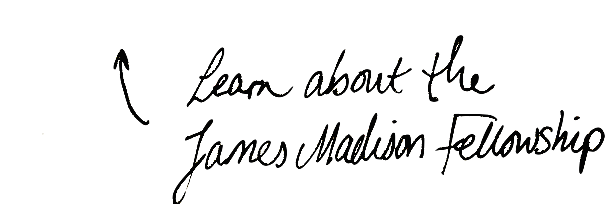 A common atheistic argument against intelligent design is that we can’t fill gaps in our understanding of the natural world with a creator. In light of some silly traditions in pagan cultures such as thunder being the gods fighting or bowling, or winter being when a goddess of nature was in a sad mood, that simplistic argument sounds rational. Most of that mythology was inconsistent even when it was popular, and it has since mostly died out in the civilized world because its inherent predictions never squared up with natural and social observations.
A common atheistic argument against intelligent design is that we can’t fill gaps in our understanding of the natural world with a creator. In light of some silly traditions in pagan cultures such as thunder being the gods fighting or bowling, or winter being when a goddess of nature was in a sad mood, that simplistic argument sounds rational. Most of that mythology was inconsistent even when it was popular, and it has since mostly died out in the civilized world because its inherent predictions never squared up with natural and social observations.
The Biblical view is unique in that it has been preserved for ages and appears to be just as widely believed now as it ever was. This is because its predictions are consistent and make sense. The God of the Bible doesn’t claim to spontaneously appear clutching thunderbolts and eating ambrosia, and thus He never does. He doesn’t claim to jump out and show Himself physically visible to the world, and thus He never does. He says that the astronomical bodies exist as signs for different times and seasons, and navigators and farmers can testify that such a claim adds up. He handed down hygienic rules that the ancient Israelites certainly could not have learned while under oppression in Egypt (ever tried an Egyptian donkey dung remedy?). Today, the health advice still makes sense. Yahweh announced that rainbows are a reminder that the earth will never again be destroyed by a flood. This lines up with the Biblical creation model that there was no water falling from heaven like rain prior to the Flood. Rain hadn’t happened before, and thus neither had rainbows. Besides, what more encouraging sign that the land is drying up after rain than colors of diffused sunlight in the sky? It still makes sense.
While touring through an old used bookstore on the square earlier this month, I came across a book that I couldn’t put down: The Beginnings of Modern Science: Scientific Writings of the 16th, 17th, and 18th Centuries (nerdy, I know). While flipping through the antiqued pages, I came across this statement by Dutch Physician Jan Ingenhousz (1730-1799):
“We might conceive a little more of the deep designs of the Supreme Wisdom in the different arrangement of sublunary beings. The stubborn atheist would, perhaps, find reason to humiliate himself before that Almighty Being, whose existence he denies because his limited senses represent to him nothing but a confused chaos of miseries and disorders in this world.” (pg. 459-460)
Ingenhousz was here concluding his observation that there are certain workings in the natural world that appear to be random, chaotic and senseless at first glance, but after further research it is discovered that they serve a well-designed purpose. In light of Ingenhousz’s argument, atheists are the ones who are stubborn in their belief because of the limits of their knowledge.
On the contrary, American astrophysicist Neil deGrasse Tyson says “intelligent design is a philosophy of ignorance”. Tyson thinks that God is invoked by scientists only when they can no longer figure out a problem (in fact, he refers to the Creator as “God of the gaps”). Of course, that disregards the rich scientific heritage that the Biblical creation model has provided through the ages:
“As I try to discern the origin of that conviction [that the universe is ordered], I seem to find it in a basic notion discovered 2000 or 3000 years ago, and enunciated first in the Western world by the ancient Hebrews: namely, that the universe is governed by a single God, and is not the product of the whims of many gods, each governing his own province according to his own laws. This monotheistic view seems to be the historical foundation for modern science.”
– Nobel Prize-winning biochemist Melvin Calvin in his work Chemical Evolution (now is that ironic or what?)
So, we have here a fascinating juxtaposition: Tyson asserts that Christians invoke the existence of God when they reach the limits of their knowledge, and Ingenhousz asserts that atheists invoke the absence of God when they reach the limits of their knowledge. It is certainly something to think about.
~Amanda~

















Priceless! I love the fact that atheist limit their senses to not see God, which is a practical truth. Everything in the natural world points to an intelligent design. It takes extreme denial to not come to this simple conclusion. One must be juxtaposed to not wanting to find order, design and majestic beauty in fear that their “god” will be de-throned.
It is time for ignorance of observation to be called out for what it is … sloppy, arrogant, non-scientific, pseudo-science!
All Laud to God from Whom all good things flow!
Excellent point, Amanda. It is amazing to me how many people remain ignorant of the fact that the idea of God as Creator played an essential role in the development of science.
Amanda, you wrote “”Today, the health advice still makes sense.”
What’s your opinion of the Biblical advise on cleansing your house of leprosy? It involves splattering bird blood about, flinging stones far from the city and burning herbs and shaving off your eyebrows. (Leviticus 14)
Stew,
That passage in Leviticus is referring to a ceremonial cleansing that happens AFTER the person has been healed from leprosy. That is dealing with the spiritual dimension, something that unbelievers do not understand. Spiritual cleansing is outside of the scientific realm, and thus doesn’t appear to “make sense” in this context of discussion. That excerpt from the Torah happened before the Messiah paid the ultimate sacrifice and offered spiritual cleansing with His blood.
~Amanda~
ah, you are right. Spiritual dimension. Which is why they had to do some voodo stuff to the house as well (verses 35 onwards) because houses catch leprosy, or because houses have a spiritual dimension?
You are ignoring that I posted the verses in reponse to your claim that the Bible had health advice that “still makes sense”
But now it seems I have to be a Bible scholar to be able to discerne context.
And the Messiah’s sacrifice renders inapplicable whole swathes of the OT, even though the Messiah himself said that he wasn’t going to do away with a single jot of the law?
More discernement required, no doubt.
Difficult for me to understand, being an unbeliever. I get it.
There is nothing in statements like “He who touches the dead body of anyone shall be unclean seven days. He shall purify himself with the water on the third day and on the seventh day; then he will be clean. But if he does not purify himself on the third day and on the seventh day, he will not be clean.” That shows any advanced knowledge or understanding of Health or Hygiene to me.
If you ignore what you want to in the bible, then sure there is a lack of silly stuff in the bible.
God walked with Adam & Eve in the Garden of Eden.
God wrestled with Jacob.
God flashes his butt at Moses.
God opens and closes the windows of heaven to let the rain in.
And of course these windows were in the dome/firmament over the flat immovable earth that is orbited by the sun.
And you know this was the basis for the church holding onto the idea of a flat earth at the center of the solar system until relatively recently.
And there are individuals even today that cite the bible as their evidence that the earth is flat and at the center of the universe. Nephilimfree (one of the highest profile Creationists on Youtube) for example is a Geo-centrist.
Stuff the Greeks who worked out 2300 years ago the diameter of the earth! We have our bible! And yes the bible is completely consistent with this representation of the universe. If Isaiah wanted to represent a ball, he could have said ball.
I know, I know, “Those People and their literal interpretation of the bible are wrong, My literal interpretation of the bible is right”
Oh, then of course there’s the biblical genetics where Jacob breeds spotted and stripped goats by having them mate in front of spotted and stripped reeds.
That’s just what I can recall off the top of my head, I have no doubt there are other examples.
No Stew, I did not ignore your response to my claim. I asserted that your response to my claim was invalid because it was not talking about health advice. It was talking about spiritual, symbolic cleansing. One must always dissect texts intellectually, invoking different fields of study as they apply.
Health advice such as abstaining from pork (which at the time could not be frozen to kill off the toxic protozoan it may carry) and meat from other scavenging animals, as well as hand washing, the use of latrines, cautiously handling dead bodies, quarantining to avoid the spread of disease, and circumcision (which has been shown to reduce the occurrence of STDs in areas where it is practiced). Specifically, the command was that circumcision be carried out on the eighth day after birth, which we now know is the day at which the baby’s Vitamin K levels are at their peak. These commands were not discovered by experimental procedures. These were commands handed down by Some One who had medical knowledge unusual to the people of that era.
I have much more to say on this subject, which I will add later.
~Amanda~
“Tyson asserts that Christians invoke the existence of God when they reach the limits of their knowledge, and Ingenhousz asserts that atheists invoke the absence of God when they reach the limits of their knowledge.”
I do wonder how this is possible. Tyson’s assertion is easy to understand: God is a way to provide an answer to an otherwise unanswerable question. “How did the universe form?” “God” Note that the question is “answered” despite no new information being added, no new routes of research being opened, no new knowledge being added.
Thus, when we reach the limits of our knowledge, although we can say “God” to provide an answer, the answer itself is ultimately meaningless. How did god do it? He’s omnipotent, he just did. Why did he do it? He’s unfathomable, it was his will. Any avenues of research are shut down, and the only thing left to do is get on your knees and pray.
When you compare this to “absence of god” being invoked when we reach the limits of knowledge, you can immediately see the difference. “Absence of god” isn’t an answer: it’s a question. “If not god, then what?” Rather than closing avenues of research and questioning, it opens them.
I won’t use the too-oft quoted “thunder-god” analogy, so let’s take a modern equivilent. If scientists had done what the creationists and IDists had been urging them to do for years, and accepted god as the creator of the first organism, no research would have been done into abiogenesis and a possible chemical origin of life. The line between chemestry and biology would still be thought of as solid and uncrossable, as it has been for almost all of history. And if biology was still thought to be a seperate field from chemestry, we would have never synthesised the first artificial cell, created chemical self-replicators, or any number of other scientific breakthroughs in the fields of organic-chemistry.
I’m not saying that research into abiogenesis is responsible for these breakthroughs, merely that the view that biology is simply a sort of advanced chemestry (an entirely materialistic concept) has opened up avenues of very profitable research that would have remained closed if science had bowed to the wishes of creationists.
ROFL! Are you kidding? Everything points to an ‘intelligent designer’? Really?
Let’s me point out a few things then:
If it is designed, then it must have a function, else why add it in?
1) Male nipples on virtually all mammals – no function.
2) Leg bones on whales – no function.
3) Claws on the wings of the Ostrich – no function.
4) Eyes on cave fish and cave salamanders – no function.
5) Mussels in the human ear – no function.
6) Goosebumps on humans – no function.
The list goes on and on.
So, either it wasn’t designed, or your ‘intelligent designer’ is a moron.
“Today, the health advice still makes sense. ”
I see. And when was the last time you sought medical advice from your priest instead of a doctor?
“Specifically, the command was that circumcision be carried out on the eighth day after birth, which we now know is the day at which the baby’s Vitamin K levels are at their peak. These commands were not discovered by experimental procedures.”
First, how do you know there were no experiments?
Which is more likely? God spoke and said “Thou shalt not snip the tip till the 8th day.”
OR
“Moses, this is the 10th kid we have lost in the last month from excessive bleeding when snipping ye old naughty bits! When the Cohen’s kid was sickly and we waited a week before we went snip-snip on his twig and berries, he didn’t bleed as much. Let’s wait a week before we snip little Neboop here and see what happens!”
*1 week later*
“Wow! Moses! We are on to something here! We waited a week before removing Neboop’s ding-a-ling hat and the bleeding was much less and he lived!! Let’s wait a week on the rest of the kids from now on!”
Clearly the second one is more rational and believable.
Amanda, if I grant you that the Bible has some useful health tips that are still valid today, will you acknowledge that it is also full of health advice that is stark raving bonkers and/or dangerous?
Or will you continue to play the “discernement” card that allows you to classify the Bible into “practical” versus “spritual” or “literal” versus “metaphorical”?
If I grant you that the Bible has some useful health tips that are still valid today will you acknowledge that they could have been the result of bronze age common sense and experimentation just as easily as divine revelation?
If I grant you that the Bible has some useful health tips that are still valid today, would you be willing to bet that a bit of research would find ancient Egyptian or Sumarian medical writings that are still accurate?
Sorry, I didn’t make a point did I?
My point being, the Bible clearly isn’t divinely inspired as it is neither accurate, consistant or unique.
Quasar,
JDiver’s first comment illustrates the point about atheists invoking the absence of God when they can’t understand something. Instead of invoking the serious curiosity of a scientist fascinated by why a designer would make something that way (considering that all other facets express design), many nonbelievers seem to take such occurrences as an opportunity to scoff and laugh at the idea of God, and then think nothing more of it. If chance brought it all about, who cares anyway?
Has it ever occurred to anyone that a Creator might be…hmm…CREATIVE? This is something that pops up when people try to figure out what purpose eyebrows serve.
Humans ourselves, as creative beings, have interesting ways of appreciating beauty. Don’t we sometimes make pieces of art that have seemingly no purpose? When we see a work of art that we do not understand, we don’t have to dismiss it with “oh well, the artist just wanted to do it that way.” On the contrary, one usually seeks out more information about the artist and the art techniques used, etc.
Oh, and JDiver, those “leg bones” in whales actually do serve a purpose – they support the reproductive organs (Dr. Wile and Dr. Martin debated this quite a bit): http://tv.westkentucky.kctcs.edu/videoclips/debate/video.wmv
But beware of dimwits in all fields. There are plenty of people that are nominally Christian, Deist, Buddhist or otherwise throughout the ages that simply don’t care about the workings of the natural world and are satisfied with boring answers (“maybe there’s a God, maybe there isn’t, who knows where we came from, I don’t care”). They aren’t scientifically inclined. There is no reason to blame the Bible for that, however.
Come to think of it, humanity slumped into the dark ages when the Bible was not widely read (due to suppression by elitists who thought it shouldn’t be printed in common languages). It was during this time that beliefs in spontaneous generation (flies from dead meat, etc.) flourished along with superstitions and unhealthy practices like dumping waste into the streets.
Back when it looked like everything came from blobs of matter, the absence of a Creator could understandably seem believable – perhaps even scientific. But now we know that the tiniest living organism is more elaborate than even Charles Darwin could have imagined, and the original list of 180 supposed vestigial organs has shrunk to nothing (http://www.trueorigin.org/lerner_resp.asp).
JDiver,
That still doesn’t explain why the 8th day precisely was chosen. Also, whatever advice a priest or any other such official might give today doesn’t necessarily have bearing on this analysis of the Bible.
Stew,
This also opens up an interesting discussion of ancient man. According to the Biblical creation model, earlier mankind would have been capable of more advanced technology than the evolutionary model proposes. However, there seems to be a pattern of information loss based on the spiritual beliefs of different cultures. I’ll try to find more about this later.
~Amanda~
Oh please.
Darwin knew cells weren’t just blobs of matter. That’s a recent Disco Institute falsehood. You can look up Darwin’s own drawings of his own study of the internal structure of the cell to the best of his ability with the microscopes he had at the time.
AND true origins blatantly lies that the definition of ‘Vestigial’ is useless. A mistake you made yourself in your post.
Once again ‘Vestigial’ doesn’t mean useless, and once again Darwin didn’t think it did either.
“Also, whatever advice a priest or any other such official might give today doesn’t necessarily have bearing on this analysis of the Bible.”
You claim that the bible’s health information is still valid. The bible says when you get a rash or disease or the like, see a priest… If the bible had valid health information it would say see a doctor, not a witchdoctor (which is exactly what these biblical priests were).
Bathtub,
I did NOT say that Darwin thought cells were blobs of matter. I said that the cell is more complex than even Darwin could have imagined. I was referring to people in the dark ages when I made the “blobs of matter” comment.
JDiver,
Because of the arrival of the Messiah, those priests don’t have that sort of authority anymore. That Levitical civil system isn’t actually in existence now. I wasn’t talking about the “health advice” of going to the priest – I was talking about the dietary and physical cleanliness advice.
~Amanda~
Alright, but your comment was amazingly close to the current Disco Institute mantra.
If chance brought it all about, who cares anyway?
Well, let me see… there’s me, I care… and… oh yeah, I nearly forgot! Every evolutionary biologist on earth cares at least enough to devote their entire working life to it. It’s interesting. And you are referring to “chance.” Where did that come from? Selective pressures are quite the opposite.
Besides, even if we were to accept your weird idea that atheists use “chance” as an inquiry stopping answer: it doesn’t fit: it leaves a gaping question open.
Straman atheist: “Chance brought it all about”
Scientist: “Okay, so how did chance bring it all about?”
Strawman atheist: “Oh, umm… I dunno…”
Scientist: [eyes bulging] “THEN LET US MAKE HOT, SWEATY RESEARCH ALL NIGHT LONG, BABY!!!”
The same question doesn’t apply to God, however. “How” is a nonsensical question when the subject is god. We’re talking about a guy that supposedly “spoke” the world into being. You can’t apply the scientific method to that, not without immediately and rather viciously discounting it. Verbal communication needs a medium: without prexisting matter, it can’t have happened, period. But he’s omnipotent, so as a part of his definition, such minor matters as science can easily and happily be set by the roadside in the name of theology. Kind of kills the scientific inquiry, though.
Has it ever occurred to anyone that a Creator might be…hmm…CREATIVE? This is something that pops up when people try to figure out what purpose eyebrows serve.
Eyebrows provide a marked-line for the brow-ridge, which is used extensively for non-verbal communication and is thus a useful selective pressure. This seems to me to be a more thorough explanation of the eyebrow feature than “god was creative, so he made eyebrows.” And it opens other questions, too: which genes control hair growth along the brow ridge? Why were they left on when all the others were turned off? What sort of mutation triggered it? SWEET SWEET RESEARCH!!!
Strawman atheist: Aaargh! Stop it! Stop it!
Scientist: YES! LOVE ME YOU GREAT BIG SCIENCY HUNK OF A MAN!
“And you are referring to “chance.” Where did that come from? Selective pressures are quite the opposite.”
Even if you believe selective pressures are bringing about the majority of diversity that we see in life today, that doesn’t explain where life and matter come from to begin with. Where does reality come from?
A “lucky chance” is the only argument that I’ve heard from the atheist crowd to describe the beginning of Earth’s existence. Atheist Atony Flew came to believe in God because of such a nonsensical argument. In his own words:
“There were two factors in particular that were decisive. One was my growing empathy with the insight of Einstein and other noted scientists that there had to be an Intelligence behind the integrated complexity of the physical Universe. The second was my own insight that the integrated complexity of life itself – which is far more complex than the physical Universe – can only be explained in terms of an Intelligent Source. I believe that the origin of life and reproduction simply cannot be explained from a biological standpoint despite numerous efforts to do so. With every passing year, the more that was discovered about the richness and inherent intelligence of life, the less it seemed likely that a chemical soup could magically generate the genetic code. The difference between life and non-life, it became apparent to me, was ontological and not chemical. The best confirmation of this radical gulf is Richard Dawkins’ comical effort to argue in The God Delusion that the origin of life can be attributed to a ”lucky chance.” If that’s the best argument you have, then the game is over. No, I did not hear a Voice. It was the evidence itself that led me to this conclusion.”
~Amanda~
Yeah, big whoop, a Philosopher became a deist in his old age. I am also confident from reading his own comments that he didn’t read The God Delusion in full anyway.
The God Delusion, now this may shock you, isn’t a chemistry or biology book. Amazing I know.
A “lucky chance” is the only argument that I’ve heard from the atheist crowd to describe the beginning of Earth’s existence.
I’m going to refrain from saying “gravity?” in a sarcastic tone and instead work upon the assumption that you meant either the beginning of Life or the Universe (and Everything, with apologies to Douglas Adams).
To the former, an explanation of the reasons “chance” plays a much smaller part in the chemical origins of life that you would intuitively expect can be found here.
To the latter, I am agnostic on the issue. There are a number of hypotheses, all with their own merits, but the nature of our own universe makes recovery of evidence on the matter difficult, to say the least.
Amanda, you are ignoring the words of your messiah who said in Matthew 5:18 that the OT law is still valid. Not one tittle or jot should be dropped till the end of time. That health info still is THE LAW.
So, when you caught your last flu, who did you see? Your doctor or your minister?
JDiver,
Jesus FULFILLED the Law. He is the Word made Flesh – the Scriptures form a picture of Him. That’s why they have eternal significance. But no longer are sacrifices necessary, because Jesus IS the perfect, unblemished Lamb who was sacrificed for our souls. I do think that keeping the Feasts and the Sabbath is something that the Messiah intends for us to do, because it gives us a greater understanding of Him.
By the way, I haven’t seen a doctor in 9 years, and I don’t have a minister. I haven’t been a Churchgoer in 16 years. I truly believe in the power of healing by prayer (based on personal evidence, among other things), but many pastors don’t. That’s why they are ineffective. Once again, they are not priests from the tribe of Levi. The majority of the tribes of Israel were scattered a long time ago. The civil establishment recorded in the Torah no longer exists.
~Amanda~
Really? Prayer heals? Then why doesn’t god heal amputees? Why aren’t there any people with restored limbs after having them removed years prior?
Mark 11:24:
Therefore I tell you, whatever you ask for in prayer, believe that you have received it, and it will be yours.
John 14:12-14 I tell you the truth, anyone who has faith in me will do what I have been doing. He will do even greater things than these, because I am going to the Father. And I will do whatever you ask in my name, so that the Son may bring glory to the Father. You may ask me for anything in my name, and I will do it.
Matt 18:19 “Again, I tell you that if two of you on earth agree about anything you ask for, it will be done for you by my Father in heaven.”
So, why are there no amputees with restored limbs? Does god hate them? Or does prayer not really do anything? Clearly the latter.
JDiver,
I find your question rather odd. For one thing, how do you know there are no amputees with restored limbs? You can’t possibly have read about or met every amputee. The one story I can think of at the moment in which a body part was cut off and restored is when Jesus healed the slave whose ear was cut off by one of His followers (Luke 22:50-51). Luke himself (who wrote that account) was a physician, so it must have made quite an impression on him – I don’t think a doctor would have made that up!
But there are numerous stories of people in our own times who have had deformed limbs that were miraculously made whole.
There are reasons why healing does not take place sometimes – most notably, it is because of unbelief. If someone does not truly believe they can be healed, and does not believe in the spiritual gift of healing (1 Corinthians 12:9), then it’s not going to happen. It’s a spiritual law of the universe – just like the natural laws of the universe. That is just one of the laws conflicting with healing.
~Amanda~
But there are numerous stories of people in our own times who have had deformed limbs that were miraculously made whole
Would you care to provide two or three for us here?
Remember: your comment was in regards JDiver’s mentioning of God not healing amputees. I’m hoping any links you might share will at least appear minimally miraculous…
It should go without saying, though experience suggests I need to be pragmatic about it, that if a story of a miracle is supposed to be taken as authoritative or credible, this allows many stories the same level of credibility. You may not find the results very palatable… (ie. the miracles of Islam are just as valid as the miracles of Catholicism or evangelical Christianity, etc)
And… lest you misunderstand my last post, I’ll be even more clear:
You’re attempting to show/convince us that limbs may be being healed miraculously. If we’re to give your stories any credibility, you can’t require us to first accept your faith as fact.
“A woman had her leg grown back.”
“How do we know?”
“The Bible tells us!”
… is not going to be convincing at all.
Odd? How do I know there aren’t any cases of restored limbs? A few simple key word searches through the medical journals is how.
Seriously. There are exactly ZERO cases of restored amputates limbs (and I don’t mean reattached a few hours after some accident) but days or years after the amputation. Exactly ZERO.
So, again you claim god heals. Then what does he have against amputees?
“But there are numerous stories of people in our own times who have had deformed limbs that were miraculously made whole.”
Then please offer ONE. ONE documented PEER REVIEWED case of a deformed limb made whole without medical science. All I want is ONE. Should be very easy for you since you claim there are numerous.
“There are reasons why healing does not take place sometimes – most notably, it is because of unbelief. ”
Don’t confuse lack of faith with lack of miracle.
Whateverman,
You have every right to want evidence for miraculous healing. But since you and JDiver have such strong presuppositions against it, I don’t think you would believe in it even if you saw it. You would come up with some random chance mutation explanation or something, probably.
I’ll begin with evidence that I’m aware of personally. A woman I have known all my life had a serious back injury years ago that had her bedridden. She could not walk. She had surgery to fix it, but it failed to help. The circulation to her legs was damaged.
As a woman of strong faith, she fervently prayed for others that she knew. While praying for them, she heard a voice tell her you think I can help all these people, but can’t heal you?. She was healed instantaneously. No medical explanation.
Another strong-believing woman I know has a damaged spine from a car accident, but suffers no ill effects. The bewildered doctor told her, “You should be having headaches,” but she doesn’t.
I would never make this stuff up, and certainly could not get it from a church. Many Christians today seem to think that miracles disappeared after the days of the original Apostles.
I will see if anything peer-reviewed exists on the subject, but I can’t help but wonder – why would medical texts bother to look into something they can’t control through medicine? Miraculous healing isn’t a formula, but a gift. When something miraculous occurs, experts label it as “no explanation”.
If you witnessed miraculous healing, would you refuse to believe it unless someone also happened to peer-review it?
~Amanda~
“If you witnessed miraculous healing, would you refuse to believe it unless someone also happened to peer-review it?”
No, but I know that I shouldn’t believe everything I see with my own eyes. I surely don’t believe, without evidence, the claims of miracles from other people based on hear-say.
I would want to examine it, explore it, test it, and measure it to make sure it wasn’t something else or a hoax.
While I believe you aren’t making these claims up and have heard them either first or second or third hand, you are in extreme error to just attribute them to being ‘miracles’.
You are too young to remember the healing evangelist Peter Popoff. He wandered the country for a long time holding revivals and healing people right and left. He even knew the ill person’s name before they could introduce themselves. Millions were convinced he was performing miracles in god’s name.
Then a wise man, named James Randi, attended one of these healing sessions…. and Popoff was ruined over night. Why? Popoff had a radio receiver in his ear and his wife was transmitting him information. The ‘healings’ were bogus. He was bogus. Why? Because Randi looked to exclude the POSSIBLE before he concluded these things were miracles….. and a cheap radio shack scanner and frequency counter helped also.
See for yourself http://www.youtube.com/watch?v=q7BQKu0YP8Y
In fact, if you can get quick cool ONE MILLION DOLLARS if you can perform a miracle for Randi or prove your physic powers, or do a healing…. The rules are simple to claim the money, not like Hovind’s bogus evolution proof rules for his prize money. Many have tried. ALL have failed….
I don’t care about afterlives or gods or other nonsense. Like Randi, I want to know about what is REAL. And I can tell you that miracle healings are NOT real.